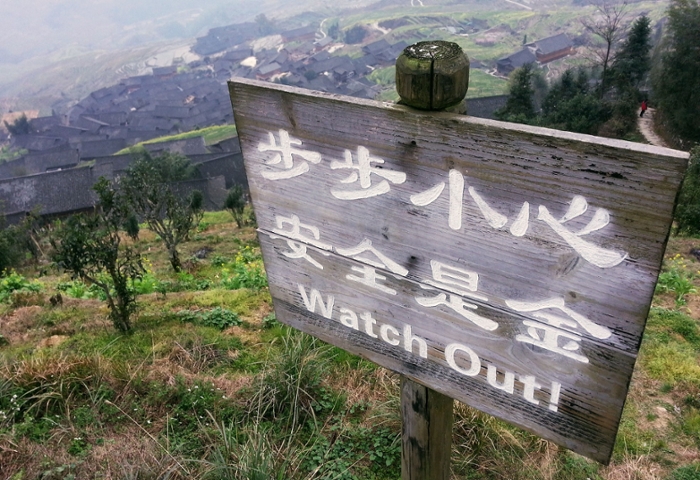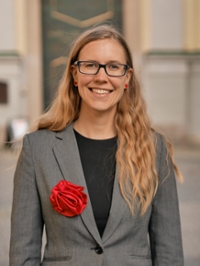Never Again: Legal Change After Food Crises in China
-----
 China regularly faces food safety crises. One of the most well-known examples is the
2008 milk powder scandal in which at least six babies died and 300,000 children got
sick.
China regularly faces food safety crises. One of the most well-known examples is the
2008 milk powder scandal in which at least six babies died and 300,000 children got
sick.
In the heat of such a crisis, there are often voices demanding change, so that "this will never happen again."
Using causal process-tracing, Ms. Van den Dool will explain how and why laws in China change after food crises. She will point to three major cases: the 2008 milk powder scandal; the ongoing avian influenza A(H7N9) outbreak; and the crisis involving thousands of dead pigs in the Huangpu River in Shanghai.
Her study adds to the theoretical discourse on post-crisis lawmaking and our understanding of political stability in China.
RSVP free here >>
About the Speaker

Annemieke van den Dool pursues interdisciplinary research in sinology (China studies), environmental science as well as public policy, regulation, crisis, compliance, and behavior, especially in relation to food, agriculture, health and safety. Her research at the University of Amsterdam aims to explain the influence of incidents, scandals or crises in China on Chinese national law, law enforcement, and the legal system in general. She uses an empirical research design in which case study methodology is employed. Data will be collected concerning a set of carefully selected crises in China involving animal-based food, for example melamine in milk, clenbuterol in pork, and SARS. Ms. Van den Dool’s supervisors are Prof. Benjamin van Rooij and Dr. Jan Popma.
Annemieke van den Dool has a multidisciplinary background in China studies and environmental science. She holds a BA degree in Chinese Languages and Cultures from Leiden University in the Netherlands, and received a scholarship from the Dutch Ministry of Education & the China Scholarship Council facilitating two semesters of Mandarin language study at Peking University.
After finishing her undergraduate degree, Ms. Van den Dool worked at the Natural Resources Defense Council (NRDC), which is a major USA-based non-profit group that uses law and science to advocate for a safe and healthy environment. Employed at the Peking office in China, she was part of the Environmental Law Project team and as such conducted research in English and Chinese on environmental public participation and public interest environmental litigation.
Ms. Van den Dool graduated from an international master’s program with a joint MSc degree in Environmental Science, Policy, and Management (MESPOM) from Lund University (Sweden), Manchester University (UK), Central European University (Hungary) and the University of the Aegean (Greece). During the two year program, she received a Full Central European University Fellowship. For her MSc thesis about a major national (re)forestation policy in China, Ms. van den Dool conducted fieldwork in rural China in cooperation with the World Agroforestry Centre (ICRAF) in Kunming. The project was facilitated by an Environmental Education and Research Alliance (ENVERA) research grant.
-----


